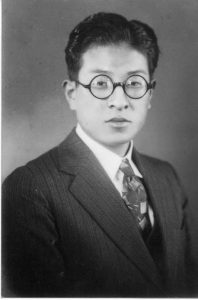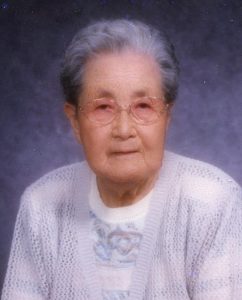Hiroshima Summit, May 19-21: Takaoki Kado, chair of Motoujina-machi residents’ association, calls on leaders to face up to reality of atomic bombing
Apr. 19, 2023
Kado was exposed to radiation after atomic bombing, lost his father in atomic bombing
Kado expects discussion, busy making preparations
by Michiko Tanaka, Senior Staff Writer
Motoujina-machi of Minami Ward is the main venue for the Summit of The Group of Seven (G7) industrialized nations to be held in Hiroshima. Takaoki Kado, 80, chair of the local residents’ association, lost his father in the atomic bombing. He himself was exposed to the radiation of the atomic bomb when he entered the city after the atomic bombing. He said, “What would happen if atomic bombs were actually used? The leaders of the nations should face up to the reality and take even a single step toward a world without nuclear weapons.” With only one month before the opening of the summit on May 19, he is making every effort in preparations for the summit.
The grave of his father Hideo is on a hill near his house. His mother Yuriko, who raised her children as a single parent after the war, also rests there. “My mother would not talk about the atomic bombing, but on the other hand, I guess she wanted to leave my father’s experience to future generations,” he said. In 2003, she wrote down what happened to Hideo in the atomic bombing and donated the record and his portrait to the Hiroshima National Peace Memorial Hall for the Atomic Bomb Victims in Naka Ward. Yuriko died in 2005 at the age of 87.
According to the record, his father, a military doctor, was exposed to the atomic bombing on August 6, 1945, during a morning meeting in the yard of an army hospital in Motomachi (now part of Naka Ward). He was taken to a first-aid station in Higashi Ward. His wife rushed there from her place of refuge in the suburbs, but he had already been moved and she could not find him. On August 14, Hideo’s father found him lying naked in a hospital in northern Hiroshima Prefecture. While his father went out to look for some clothes to cover him, Hideo died. He was 34.
Mr. Kado was 3 at that time. He entered the city center with his younger brother, who was 2, to attend his father’s funeral around August 15. In 1997, his mother wrote her feelings for her sons, who lost their father before they could remember, in a collection of A-bomb accounts published by graduates of Hiroshima High School (now Hiroshima University), her husband’s alma mater. She wrote, “The atomic bombing brought an end to the war, and my husband became a sacrifice… I was very sad, but I tried to think that it was my fate, and I calmed myself down and worked as hard as I could to fulfill my responsibility of bringing up my 2- and 3-year-old children.”
When Mr. Kado was in his late 50s, his mother recommended he obtain an Atomic Bomb Survivor’s Certificate. It was more than half a century after the atomic bombing. “I guess my mother was concerned about discrimination and wanted to conceal the fact that her son had been exposed to radiation.” Since then, Mr. Kado became more aware that he was an A-bomb survivor. He took more interest in the G7 foreign ministers’ meeting held in Hiroshima in 2016. “There are enough nuclear weapons in the world to destroy the earth many times over. Accidental bombing is scary enough, but some countries are even using them as a threat.”
Four years ago, Mr. Kado became the chair of the local residents’ association, and the Hiroshima Summit will be held in his neighborhood. To make the summit a success, he has been taking an active role, asking the local government questions raised by local residents and calling for cleanup efforts in the community. “There are many families in Motoujina alone who have suffered from the atomic bombing. The leaders participating in the Hiroshima Summit must learn the reality of nuclear weapons and engage in fruitful discussions.”
(Originally published on April 19, 2023)








